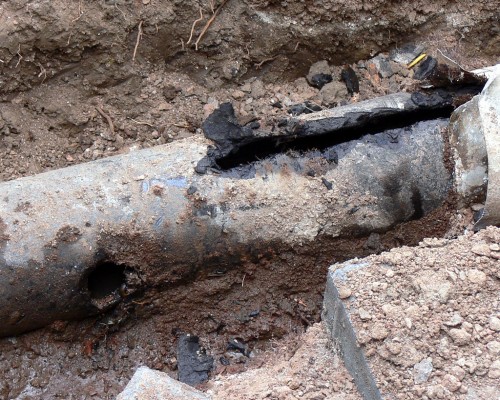
A lot of home owners don’t realize that they are responsible for the water and sewer pipes that lead from their home to the utility pipes on the street. This has created an opportunity for a variety of businesses to offer sewer line insurance. Basically, this insurance is supposed to protect you should you have any problem with the lines feeding out from your house. Those who have septic tanks may get offers for similar services. The question that many people ask themselves when they are first made aware of this is, “Do I really need to get sewer pipe insurance?”
The first thing you need to ask yourself is whether or not it makes sense for you to get this type of coverage. If you are living in a home that is still relatively new, the likelihood of having external pipe problems is minimal. In this instance, it probably doesn’t make much sense to pay for this service. On the other hand, there are a few situations where you might want to at least consider purchasing this type of insurance:
Older Home
If you reside in an older home where the piping has never been replaced, then it might make sense to purchase this insurance. Water and sewer pipes usually have a life expectancy of about 50 years. If your home is getting to be this age, there’s a chance that you may have some issues with your pipes.
Trees on Property
If you have any trees with elaborate root systems on your property that are close to where your pipes are, this can be another reason to consider this insurance. The roots of trees have a way of fitting themselves into the pipes which can cause all types of problems, requiring them to be replaced.
Other Houses Have Problems
Another indicator of whether it might be a good idea to get this insurance is if other homes in your area have had pipe problems. If your neighbors have had to dig up and replace their sewer pipes, it might indicate that you could have similar problems in the near future. This is especially true if you live in tract homes which were all built by the same builder.
If after considering the pros and cons, you decide that you do need sewer pipe insurance, there are a number of things that you need to look at when purchasing.
Do You Already Have It?
Before you go out and pay for insurance, make sure that you’re not already covered. Some homeowner’s insurance policies will include pipes in their overall insurance coverage. Simply call your local agent and ask if the pipes going from your house to the street are covered under your current policy.
If Not, Can Your Get a Rider?
If you find out that your current homeowners insurance doesn’t cover this, see if you can have it included on your insurance as a rider. It will be much less expensive to get it through your current homeowners insurance than to buy it from the water utility or another outside company that specializes in sewer protection.
Self-Insure
If getting this isn’t possible with your current insurance company, consider self-insuring. In other words, create an emergency fund that can take care of not only a situation with your pipes, but the many other unexpected emergencies that can occur. It’s possible to buy insurance for almost anything these days, from airline crashes to zipline adventures, but trying to cover yourself from every possible thing that might happen can get quite expensive. Instead, self-insure by setting aside a savings account to place in money each month for emergencies so that you have the money if it does happen.
Understand the Fine Print
If you decide to go with an independent company that specializes in sewer insurance, the Better Business Bureau (BBB) recommends that you carefully read the fine print. A lot of people first consider this when they receive something in the mail for inexpensive insurance that claims to cover water service pipes. The problem is that in the fine print they may exclude things such as Acts of God, normal wear and tear, faulty construction, etc. Basically, they exclude so many things that even if your pipes do have problems, they aren’t likely to pay for them due to all the exceptions. In other words, the policy is inexpensive because it really doesn’t cover anything. Before you decide to get it, know exactly what it is you’re getting.
For those who think that they might need this, you can find more discussion on this topic in the forums.
(Photo courtesy of Jessica Merz)
Jeffrey strain is a freelance author, his work has appeared at The Street.com and seekingalpha.com. In addition to having authored thousands of articles, Jeffrey is a former resident of Japan, former owner of Savingadvice.com and a professional digital nomad.












 Bengali (Bangladesh) ·
Bengali (Bangladesh) ·  English (United States) ·
English (United States) ·